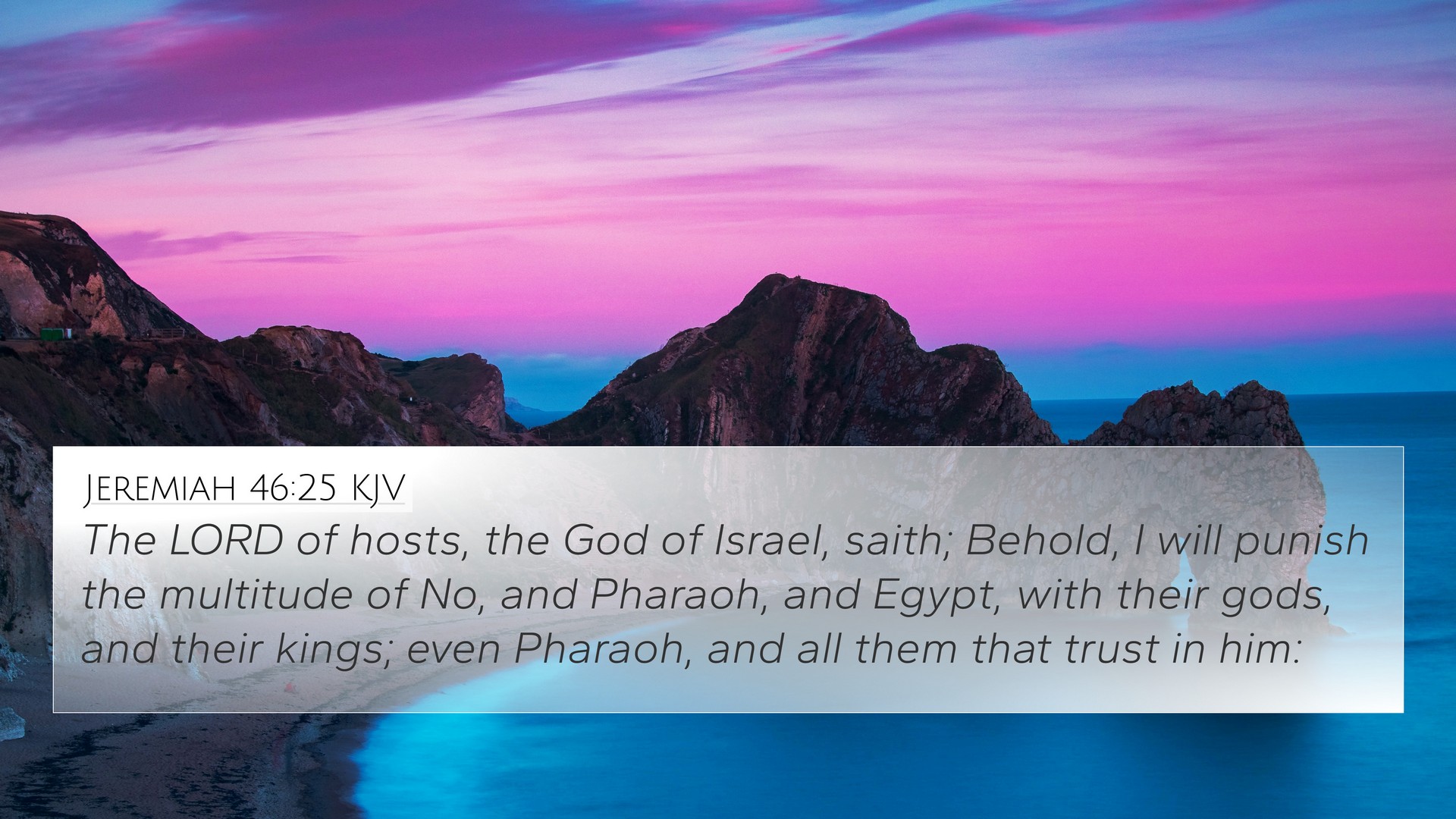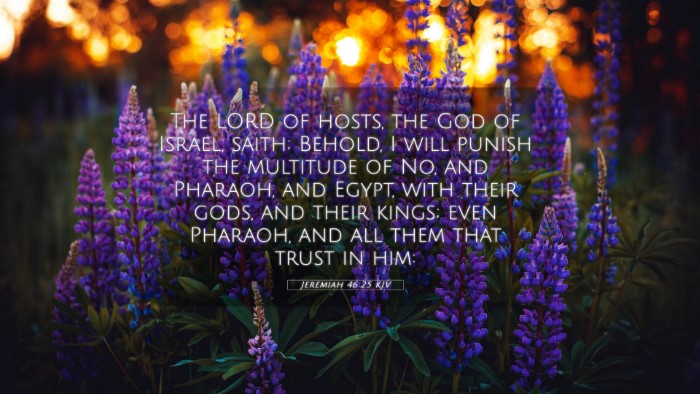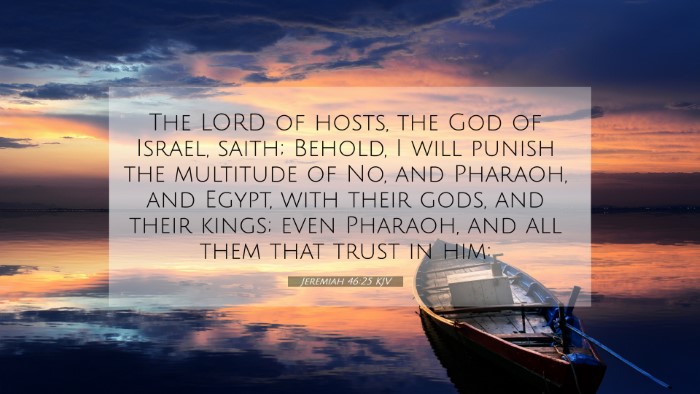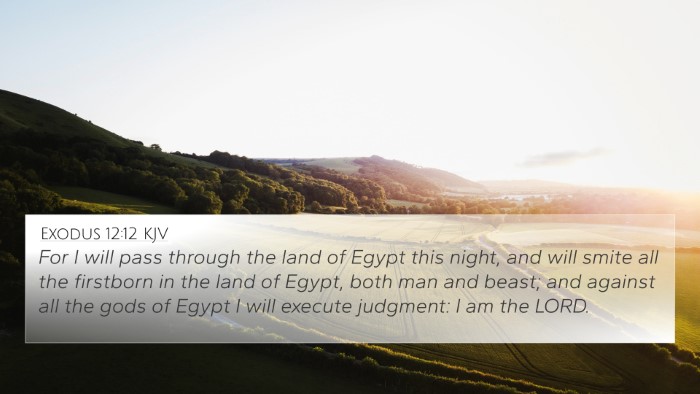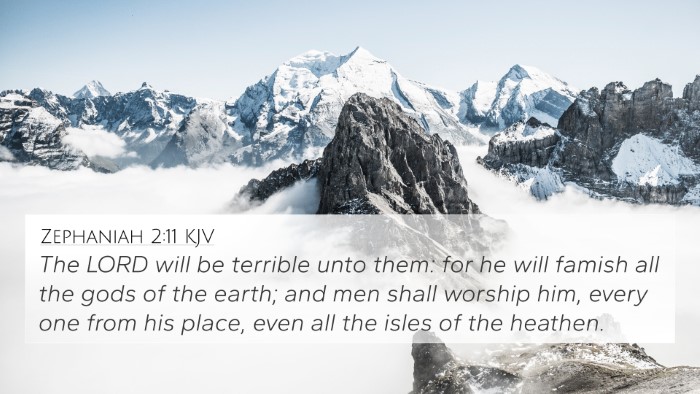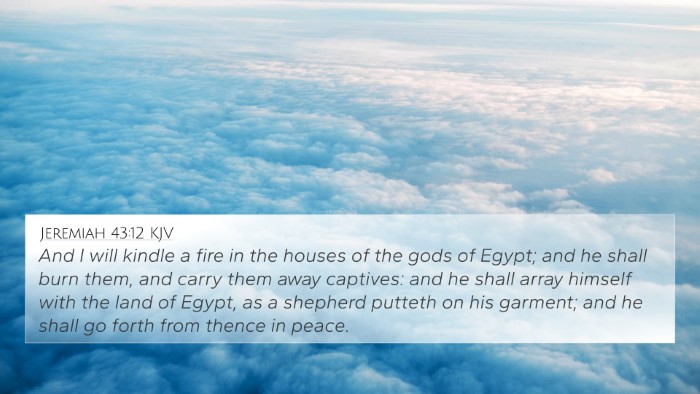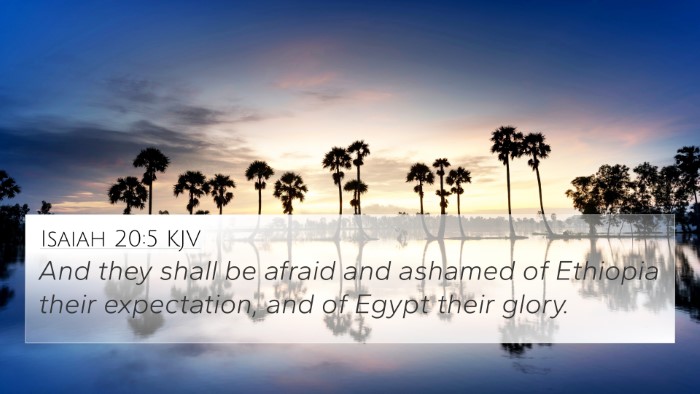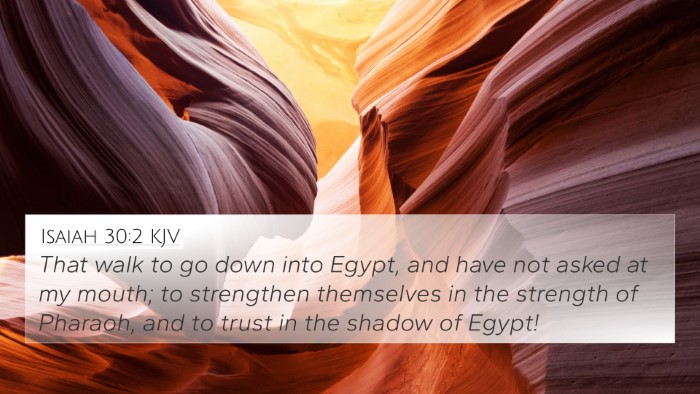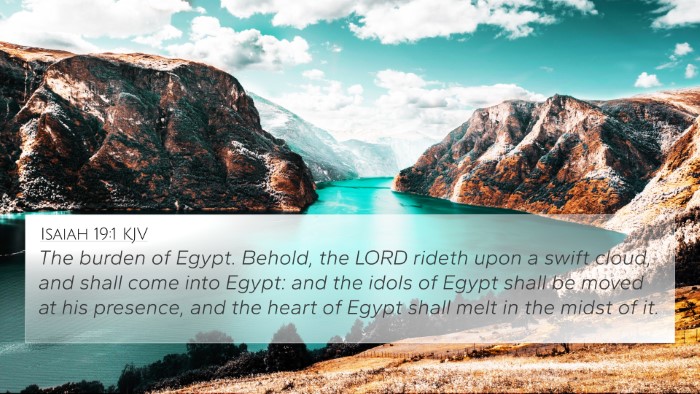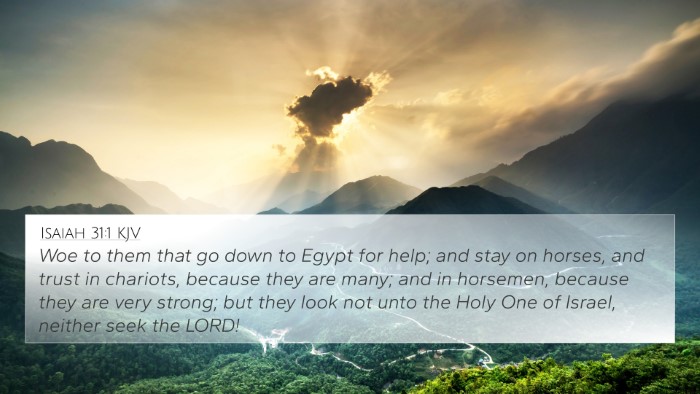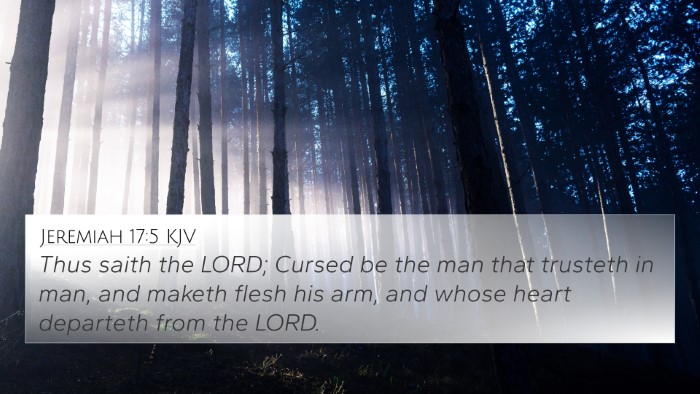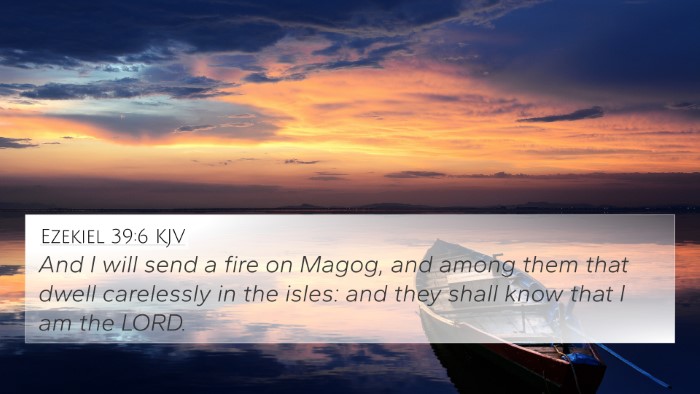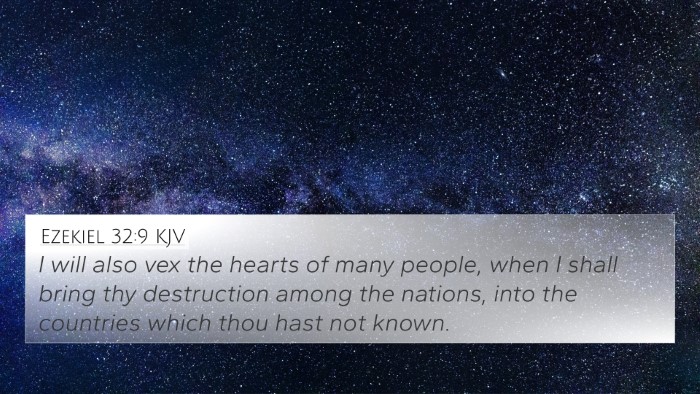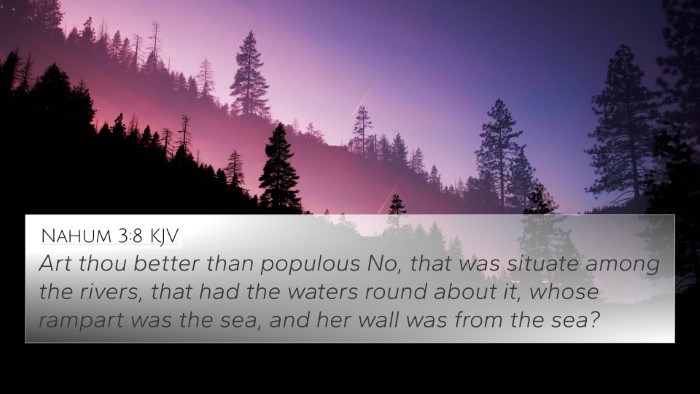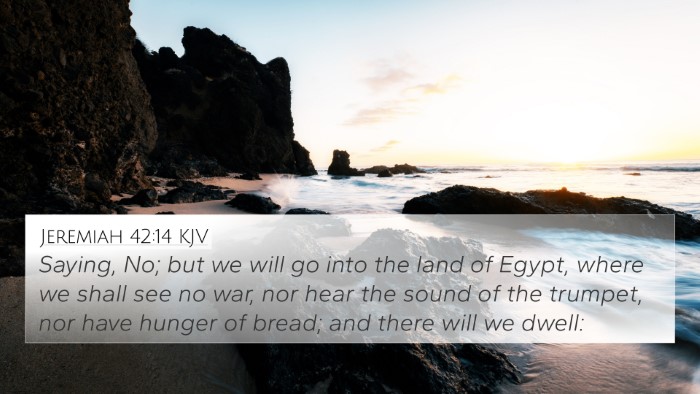Bible Verse Meaning: Jeremiah 46:25
Verse Translation: "The Lord of hosts, the God of Israel, saith; Behold, I will punish the multitude of No, and Pharaoh, and Egypt, with their gods and their kings; even Pharaoh, and all them that trust in him." (Jeremiah 46:25, KJV)
Contextual Background
This verse comes from a prophetic context where God announces judgment upon Egypt, symbolizing not only a regime but a place of refuge that Israel had previously turned to in times of trouble. The "multitude of No" refers to the city of Thebes or No in Egypt, which was known for its great wealth and idolatry.
Summary of Insights
- Divine Judgment: God declares that He will punish not just the people of Egypt, but the false gods they served. This reflects the overarching biblical theme of God's sovereignty over all nations and deities.
- Pharaoh's Trust: The verse highlights the futility of trusting in earthly powers (Pharaoh symbolizes this trust) rather than the Almighty God. It reminds believers of the dangers of misplaced faith.
- The Collective Fate: The mention of "their gods and their kings" suggests a comprehensive judgment that underscores God's rejection of idolatry and the reliance on human leaders.
Commentary Insights
Matthew Henry elaborates on the certainty of judgment that befalls those who engage in idolatry and rebellion against God. He emphasizes that God’s judgment is not arbitrary but serves to highlight His supremacy.
Albert Barnes notes that the term "multitude of No" indicates that Egypt’s reliance on its strength and military power will fail. He reiterates that the context of this prophecy is a warning against taking comfort in alliances with nations instead of trusting in God.
Adam Clarke discusses the historical significance of Thebes and how its downfall serves as a metaphor for the ultimate downfall of any power that stands against God's will. He expounds on the inevitability of God’s judgment for those who reject true worship.
Bible Cross-References
- Exodus 12:12: The judgment upon Egyptian gods during the Passover.
- Isaiah 19:1: A prophecy concerning the coming judgment on Egypt.
- Ezekiel 30:1-5: God's judgment on Egypt and its allies.
- Jeremiah 43:10: God’s command regarding the fate of Pharaoh and Egypt.
- Psalm 146:3: A reminder not to put trust in rulers.
- Revelation 16:10: Plagues and divine judgments against nations in the end times.
- Hosea 14:3: A call to cease reliance on foreign gods and armies.
- Isaiah 42:8: God’s affirmation that He is the sole deity deserving of worship.
- Jeremiah 1:14: God's intent to bring disaster from the north, symbolizing judgment.
- Micah 5:10-11: Prophecies of judgment and the fall of military power.
Thematic Connections with Other Scriptures
This verse reflects broader themes throughout scripture regarding judgment against idolatry and misplaced trust. It resonates with the prophetic voices found in Isaiah, Ezekiel, and Hosea, indicating a persistent message that God alone should be the foundation of trust.
Cross-Referencing Biblical Texts: Jeremiah 46:25 can also be linked with New Testament warnings against idolatry and misplaced faith, such as in 1 John 5:21, which cautions against idolatry, emphasizing the continuity of this theme across both Testaments.
Conclusion
This verse serves as a crucial reminder of God's power and authority over nations, highlighting the futility of trusting in worldly powers and systems. The connections drawn through cross-referencing provides a rich understanding of the continual biblical testament against idolatry and the reliance upon false gods.
Through comparative analysis and thematic exploration, believers are encouraged to reflect on their own trust foundations and seek God as the ultimate source of security and power.
